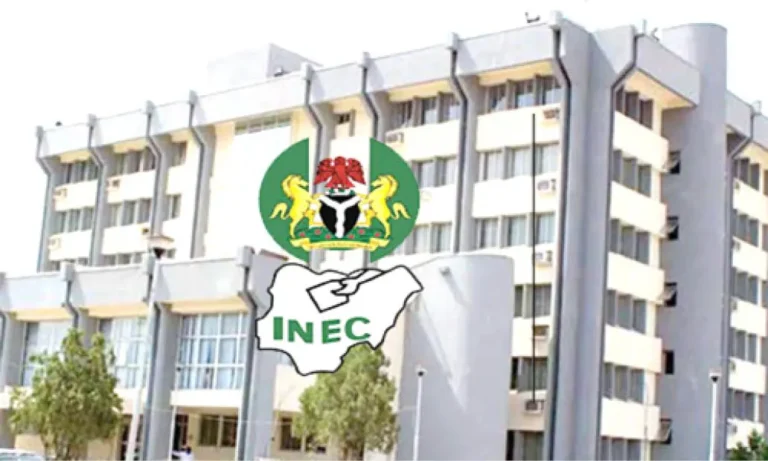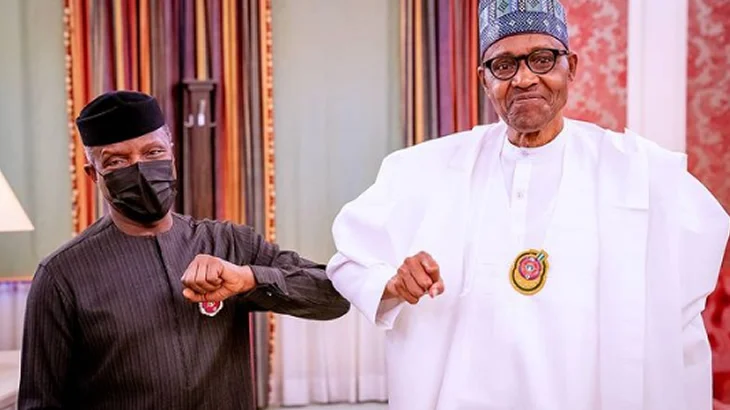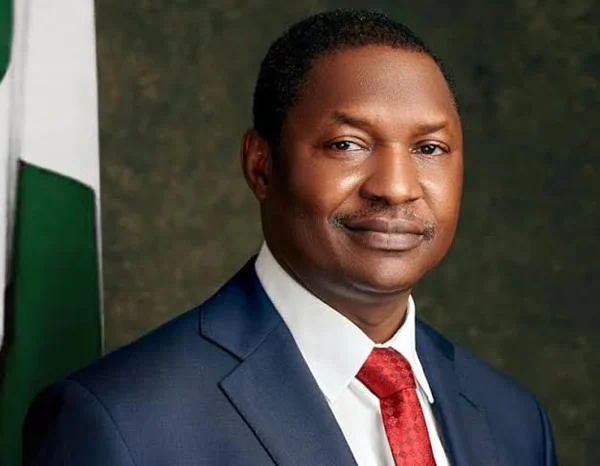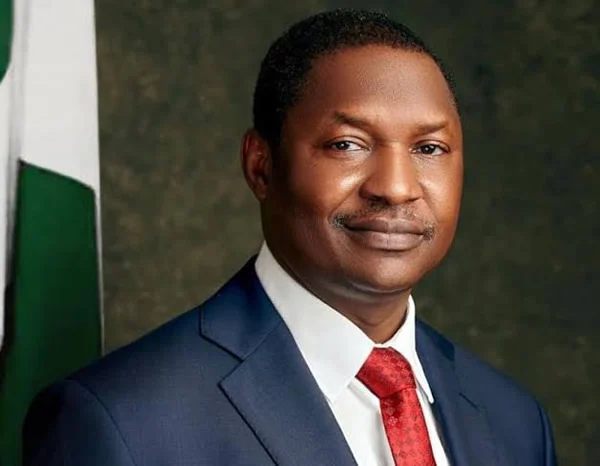
Last Monday at the convocation of the Nigerian Institute of Legislative and Democratic Studies, NILDS, former National Chairman of Nigeria’s Independent National Electoral Commission, INEC, Professor Attahiru Muhammadu Jega, OFR, spoke on the topic, ELECTORAL INTEGRITY AS PANACEA FOR DEMOCRATIC DEVELOPMENT IN NIGERIA, where he laid out the imperatives critical for the integrity of elections to be upheld. Coming on the heels of the swearing-in of Professor Joash Amupitan as the new National Chairman of INEC, the suggestions are all too familiar, coming from an experienced hand. In an era where the new INEC helmsman will have to contend with some National Commissioners and Resident Electoral Commissioners, RECs, who are alleged to be card-carrying members of the ruling All Progressives Congress, APC, Amupitan has his work cut out for him. Whereas the new Chairman has been making the useful noises steeped in promises of better election outcomes, his predecessor’s promises ended up as a fool’s errand. To ensure that Amupitan succeeds, and as the governorship election in Anambra is scheduled to hold this week, all hands must be on deck to secure Nigeria’s democracy. This report is a first step in that direction.
Professor Attahiru Jega’s speech at the convocation of the Nigerian Institute of Legislative and Democratic Studies, NILDS, on the topic, ELECTORAL INTEGRITY AS PANACEA FOR DEMOCRATIC DEVELOPMENT IN NIGERIA is not merely an academic treatise; it is a foundational manifesto and a direct charge to the new National Chairman of Nigeria’s Independent National Electoral Commission, INEC, Professor Joash Amupitan. His counsel can be broken down into several critical pillars for achieving electoral credibility in Nigeria. The first test is the governorship election scheduled to be held in Anambra State on Saturday, November 8, 2025.
The Philosophical Foundation: Integrity as a Non-Negotiable Panacea
Jega’s central thesis is that electoral integrity is the “panacea for democratic development.” He defines this not as the mere absence of fraud, but as a positive, holistic condition where elections are “professional, impartial, and transparent in its preparation and administration throughout the electoral cycle.” For Amupitan, this means his entire tenure must be judged by this single metric: did the elections under his watch have integrity? This shifts the focus from just delivering an election on schedule to delivering an election that is broadly accepted as legitimate.
The Institutional Mandate: Fortifying INEC’s Independence and Professionalism
Jega explicitly calls for the “strengthening of independent and impartial election management bodies.” His counsel to Amupitan is to fiercely protect INEC’s autonomy from political interference. This involves: Operational Independence: Ensuring that INEC’s decisions on logistics, personnel, and results are final and not subject to political negotiation. In the area of professionalism, he counsels that the new INEC Chairman must combat the “unethical, unprofessional and amoral disposition of election officials” through rigorous training, better welfare, and a strict code of conduct. Regarding transparency, Jega advocates for “improved transparency and accountability of the INEC through effective communication.” Amupitan must make INEC’s processes so open that they become their own defence against misinformation.
Technological Imperative: Leveraging and Securing Technology
Professor Jega highlights the dual nature of technology in this instance. While endorsing its “deployment and use,” he issues a stark warning about the “risks of cyber attacks,” urging the “deployment of effective protective cyber security.” For Amupitan, the counsel is clear: technology is a crucial tool for credibility, but it is also a new vulnerability. He must not only maintain systems like the BVAS and IReV but also invest heavily in securing them from both internal compromise and external attacks.
The Legal and Judicial Ecosystem: A Call for Synergy and Integrity
Jega identifies a critical weak link, the “increased corrupt judicial involvement in the determination of electoral matters.” His counsel extends beyond INEC’s walls to the broader justice system. He calls for: (a) An Effective Electoral Justice System: This provides legal redress and ensures losers accept outcomes without violence. (b) Judicial Integrity: He pointedly advises that “our courts and justices… need to also conduct their duties with integrity.” Amupitan cannot control the judiciary, but he can ensure INEC’s processes are so robust that they leave little room for judicial manipulation, thereby putting the judiciary itself to the test.
Stakeholder Approach: Building an “Alliance for Elections with Integrity”
Jega understands that INEC cannot act alone. He counsels the need to “forge and strengthen partnerships and collaborations with stakeholders.” This includes: Political Parties and Politicians: Encouraging them to respect the rules and eschew the “do-or-die” mentality. Security Agencies: Ensuring they are professional and impartial. Civil Society and the Media: Leveraging their capacity for monitoring and public oversight. Citizens: “Engendering public trust” to combat “voter apathy” and encourage participation.
Continuous Improvement Model: Reform as a Constant Process
Jega makes it clear that the work is never done (“it is still work in progress”). His recommendations for “periodic review” of the legal framework and “continuous legal and administrative reforms” are a direct charge to Amupitan to be a proactive reformer, not a passive administrator. He must constantly seek to improve processes, laws, and technologies.
Humongous Challenges Ahead
Unfortunately for the new INEC Chairman, institutions like the National Assembly, security agencies and even the political parties constitute a central core of mountains he must be mindful of if he is to have a clear view of what he needs to do. The irony of Nigeria’s electoral system is that the more modern the electoral laws become the more contentious, acrimonious and disputative electoral outcomes become.
Jega also outlined faces a constellation of daunting challenges ahead for Professor Amupitan, which include but are not limited to the following:
The Political Class and the “Do-or-Die” Mentality
This is Jega’s primary obstacle. Amupitan will face politicians who are masters of subverting the process through “deployment of cash,” “paid thugs,” and the “use of incumbency power.” Their resistance to a truly impartial INEC will be his greatest external challenge. He must possess the political fortitude to withstand immense pressure from the very government that funds his agency.
The Judiciary’s Credibility Crisis
As Professor Jega noted, the judiciary has become a major theatre for electoral conflict. Amupitan will have to manage a situation where INEC’s credible work could be overturned by courts whose judgments are viewed with widespread public suspicion. This erodes the very legitimacy that INEC strives to build.
The Logistical Leviathan
Nigeria’s size,terrain, and infrastructure deficits make elections a logistical nightmare. The “challenges of logistics relating to… result transmission” that Jega mentioned nearly derailed the 2023 elections. Amupitan must solve the perennial issues of late commencement, ad-hoc staff management, and secure transportation of materials and personnel. Worse, the internal sabotage that cripples the delivery of election materials must be tackled.
Scourge of Election Finance and Vote-Buying
The”violation of campaign finance laws” and the “deployment of cash… to buy off voters” have become normalized. This directly attacks the concept of a free and fair vote. Amupitan must find ways, in collaboration with anti-corruption agencies, to curb this practice, though it is a societal ill far beyond INEC’s direct control. Even at that, a situation where security agents focus on opposition parties while the ruling party has a free pass in buying votes creates negative optics.
Crisis of Citizen Trust and Voter Apathy
Jega identified “voter apathy” as a key obstacle, born from a “loss of confidence.” After the controversies of 2023, a significant portion of the electorate is disillusioned. That was a direct consequence of how the former INEC boss delivered on his promises. Amupitan’s most profound challenge is to win back the trust of the Nigerian people through demonstrable impartiality and competence, convincing them that their votes will indeed count. Anambra’s governorship election will be a test case.
Securing the Digital Frontier
The 2023 election was Nigeria’s most technologically advanced, but it also exposed new vulnerabilities. Amupitan must oversee a technological system that is not only efficient but also impregnable to cyber-attacks and internal sabotage, all while maintaining public confidence in that very technology.
In conclusion, Professor Jega has handed Professor Amupitan a comprehensive blueprint and a solemn charge. He makes it clear that the new INEC Chairman’s role is that of a guardian of democracy itself.
His success will not be measured by the smoothness of the electoral process alone, but by whether the outcomes are seen as legitimate expressions of the people’s will. Amupitan must be a fortress against political pressure, a reformer of institutional processes, a builder of public trust, and a guarantor of technological security. The challenges are Herculean, but Jega has provided the essential map. The question now is whether Professor Amupitan has the courage, skill, and unwavering integrity to navigate the treacherous terrain ahead. The future of Nigeria’s democracy may well depend on it.
VANGUARD.




